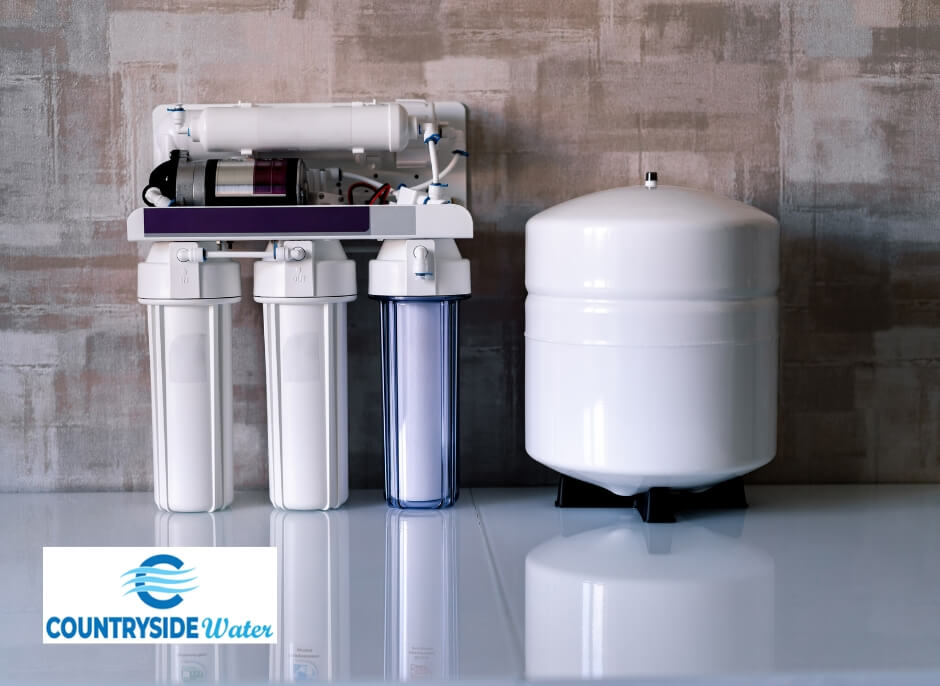What are a few differences between a water softener and a whole house system.
Water stands as a fundamental element of life, with its purity and quality playing a pivotal role in ensuring the well-being of individuals and the durability of household appliances. When seeking to enhance water quality, two commonly employed solutions are water softeners and whole house filters.
Despite sharing the common goal of improving water quality, these systems serve distinct purposes. This article aims to delve into the key disparities between a water softener and a whole house filter, shedding light on the scenarios where each proves most beneficial.
Addressing Hard Water Woes with Water Softeners
Water softeners are meticulously designed to combat the prevalent issue of hard water, distinguished by elevated concentrations of minerals, notably calcium and magnesium. Although these minerals pose no direct harm to human health, their presence can wreak havoc on plumbing systems and appliances, as well as the skin and hair.
The operational mechanism of water softeners revolves around ion exchange. Within the system, resin beads attract and eliminate calcium and magnesium ions from the water, replacing them with sodium ions. This process effectively “softens” the water, thwarting the formation of scale deposits in pipes and appliances. Beyond this, softened water exhibits enhanced lathering properties with soap, offering a more gratifying shower experience and superior cleaning results.
Key advantages of water softeners include an extended lifespan for appliances, reduced plumbing maintenance, and softer skin and hair. However, it’s imperative to note that water softeners do not address contaminants such as chlorine, sediment, or other common impurities found in water.
Whole House Filter: A Holistic Approach to Water Purity
Conversely, whole house filters are engineered to deliver a more comprehensive spectrum of water purification. These filters target a broad array of contaminants, ranging from sediments and chlorine to heavy metals and various organic compounds. The filtration process entails multiple stages, employing diverse filter media to capture and eliminate various contaminants.
Installed where water enters the house, whole house filters ensure that every tap and appliance receives filtered water. This comprehensive filtration not only enhances water taste and clarity but also safeguards appliances and plumbing from damage attributed to sediment and other impurities.
Water Softener vs. Whole House Filter: Making the Right Choice
The decision between a water softener and a whole house filter hinges on the specific water issues faced by a household. If the primary concern centers around hard water and its adverse effects on appliances and plumbing, a water softener emerges as the most suitable choice. Conversely, if the water exhibits a diverse range of impurities affecting taste, odor, and overall quality, a whole house filter proves to be the better option.
In certain instances, homeowners may opt to combine both systems for a comprehensive water treatment solution. This strategic approach enables the benefits of softened water alongside the removal of a wide range of contaminants, presenting a holistic strategy for maintaining optimal water quality.
Contact Countryside Water to Learn More About a Water Softener vs. a Whole House Filter
In the perpetual pursuit of clean and healthy water, grasping the distinctions between a water softener and a whole house filter holds paramount importance. While a water softener targets the specific issue of hard water by extracting minerals, a whole house filter adopts a more inclusive strategy, addressing a broader spectrum of contaminants.
The decision between these systems ultimately hinges on the unique water quality concerns of a household, with a combined approach emerging as an ideal solution in some cases, ensuring the achievement of optimal water purity.
Contact Countryside Water to schedule a water test for your home!

